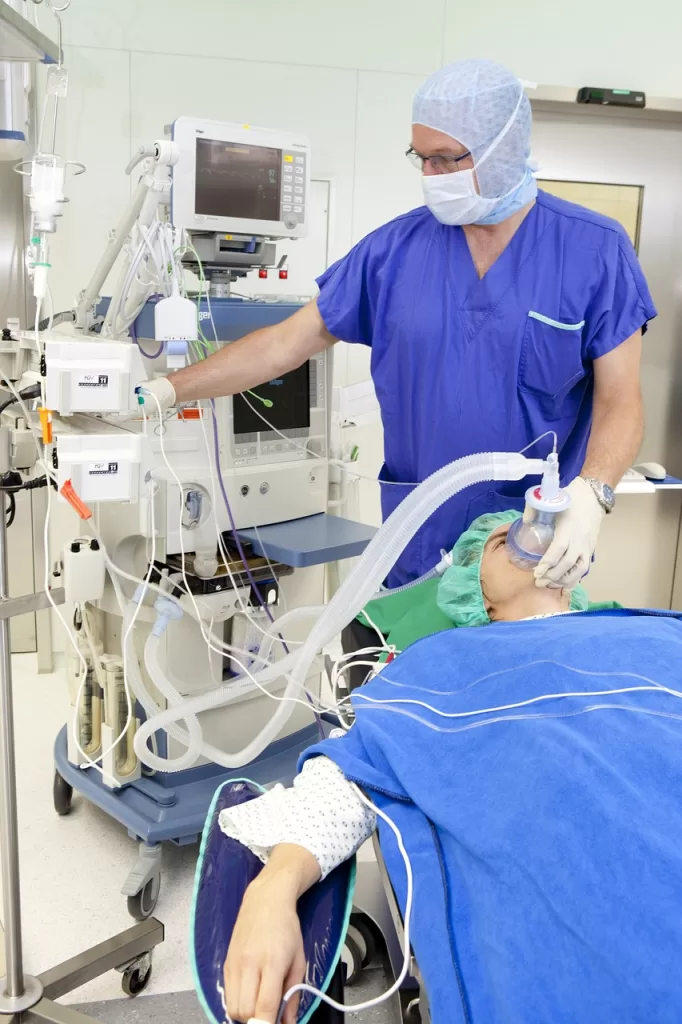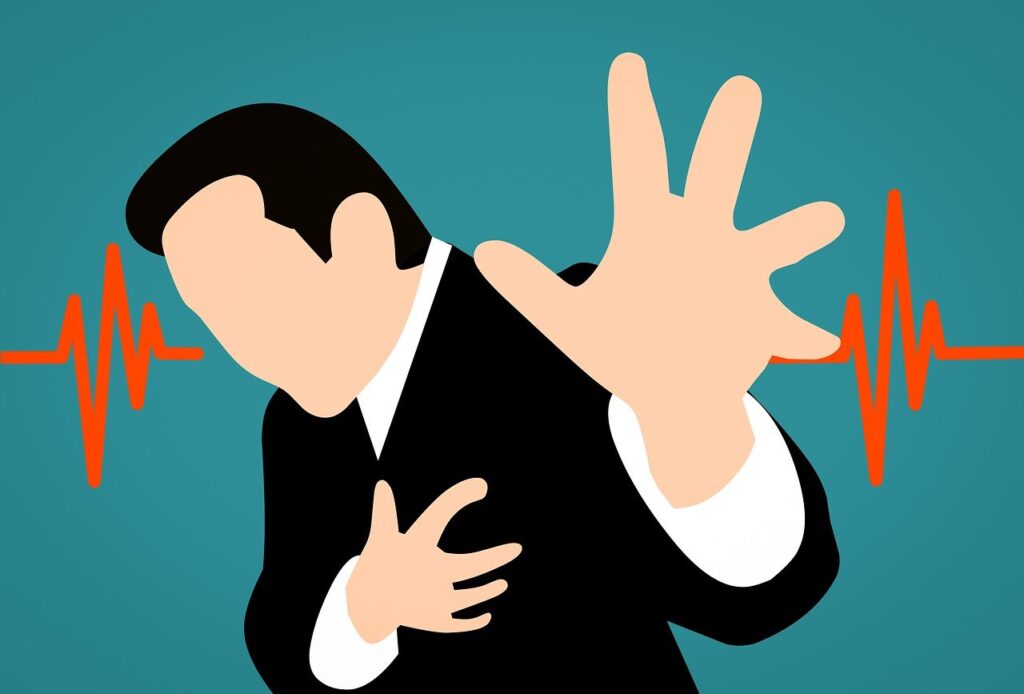What is the best medicine for chest pain when breathing? Chest pain and shortness of breath are symptoms that you should never ignore, as they can indicate potentially serious medical conditions. These symptoms can arise from various causes, including cardiovascular, respiratory, gastrointestinal, or musculoskeletal issues. Seeking prompt medical attention and appropriate treatment is crucial for diagnosing and managing the underlying cause effectively. Here, I will explore the potential causes of chest pain and shortness of breath, the diagnostic process, and the diverse treatment options available to address these symptoms.
Significance of Chest Pain When Breathing
Chest pain while breathing, medically known as pleuritic chest pain, can stem from various causes and should be evaluated promptly. It can indicate issues with the lungs, chest wall, or surrounding structures. Some potential causes include:
- Pleurisy: Inflammation of the lining around the lungs (pleura) can cause sharp chest pain worsened by breathing or coughing.
- Pneumonia: Lung infection that can lead to chest pain, especially during breathing, along with symptoms like fever, cough, and difficulty breathing.
- Pulmonary Embolism: A blood clot in the lungs can cause sudden, sharp chest pain, especially during breathing, accompanied by shortness of breath and other concerning symptoms.
- Costochondritis: Inflammation of the cartilage that connects the ribs to the breastbone can cause chest pain exacerbated by deep breathing or movements.
- Rib Fractures or Injury: Trauma to the chest, such as a fall or injury, can cause pain with breathing if ribs are fractured or injured.
- Pleural Effusion: Accumulation of fluid around the lungs can cause chest pain while breathing, along with other symptoms like cough and shortness of breath.
- Pulmonary Conditions: Conditions like asthma, chronic obstructive pulmonary disease (COPD), or lung cancer can cause chest discomfort exacerbated by breathing.
- Gastrointestinal Issues: In some cases, conditions like acid reflux or inflammation of the esophagus (esophagitis) can cause chest pain that worsens with breathing.
Causes of Chest Pain and Shortness of Breath
Cardiovascular Causes
- Coronary Artery Disease (CAD): Coronary artery disease is a prevalent condition characterized by the gradual accumulation of plaque in the arteries, restricting blood flow to the heart.
- Angina Pectoris: Angina refers to chest pain or discomfort due to reduced blood flow to the heart muscles, often caused by narrowed coronary arteries.
- Myocardial Infarction (Heart Attack): Myocardial infarction occurs when a coronary artery is completely blocked, leading to the death of heart muscle cells.
- Heart Failure: Heart failure transpires when the heart is unable to pump blood effectively, resulting in an inadequate supply of oxygen to the body.
Respiratory Causes
- Pneumonia: Pneumonia is an infection that inflames the air sacs in one or both lungs, causing chest pain and shortness of breath due to impaired respiratory function.
- Pulmonary Embolism: Pulmonary embolism is a life-threatening condition where a blood clot lodges in the pulmonary arteries, obstructing blood flow to the lungs.
- Asthma: Asthma is a chronic respiratory condition characterized by inflammation and narrowing of the airways, leading to breathing difficulties and chest tightness.
- Chronic Obstructive Pulmonary Disease (COPD): COPD encompasses chronic bronchitis and emphysema, causing persistent airflow obstruction and respiratory symptoms.
Gastrointestinal Causes
- Gastroesophageal Reflux Disease (GERD): GERD occurs when stomach acid flows back into the esophagus, causing a burning sensation in the chest and potentially triggering respiratory issues.
- Peptic Ulcer Disease: Peptic ulcers, open sores in the stomach or the duodenum, may provoke chest pain and difficulty breathing, particularly if complications arise.
- Gallbladder Disease: Conditions such as gallstones or inflammation of the gallbladder can radiate pain to the chest and cause discomfort during breathing.
Musculoskeletal Causes
- Costochondritis: Costochondritis is the inflammation of the cartilage connecting the ribs to the breastbone, often causing localized chest pain exacerbated by movement or palpation.
- Muscle Strain: Strained or pulled muscles in the chest or back can elicit sharp or dull chest pain along with breathing difficulties.
- Rib Fracture: A fractured rib can result from trauma or stress, causing intense pain during breathing or movement.
Diagnostic Process
Medical History and Physical Examination

- Detailed patient history
- Thorough physical examination
- Evaluation of risk factors and medical conditions
Diagnostic Tests
- Electrocardiogram (EKG)
- Chest X-ray
- Echocardiogram
- Pulmonary function tests
- Computed tomography (CT) scan
- Blood tests (e.g., cardiac enzymes, D-dimer, blood gas analysis)
Treatment Options
Cardiovascular Treatments
- Medications: a. Antiplatelet drugs (aspirin, clopidogrel) b. Beta-blockers c. Nitroglycerin
- Lifestyle Changes: a. Heart-healthy diet b. Regular exercise c. Smoking cessation d. Stress management techniques
- Invasive Procedures: a. Percutaneous coronary intervention (PCI) b. Coronary artery bypass grafting (CABG)
Respiratory Treatments
- Medications: a. Bronchodilators b. Corticosteroids
- Oxygen therapy
- Pulmonary rehabilitation
Gastrointestinal Treatments
- Medications: a. Proton pump inhibitors (PPIs) b. Antacids
- Dietary modifications
- Lifestyle changes: a. Weight management b. Avoiding trigger foods
Musculoskeletal Treatments
- Pain management with NSAIDs or acetaminophen
- Physical therapy
- Rest and activity modification
Holistic Approaches and Lifestyle Changes
Stress Reduction Techniques:
- Yoga
- Meditation
- Breathing exercises
Dietary Modifications
- Adopting a heart-healthy diet
- Reducing salt and processed food intake
Regular Exercise and Physical Activity
- Aerobic exercises
- Strength training
Smoking Cessation
- Smoking cessation programs
- Nicotine replacement therapy
Importance of Seeking Out Medical Attention for Chest Pain Symptoms
Seeking medical attention for chest pain symptoms is crucial due to several reasons:
- Potential Seriousness: Chest pain can be a symptom of a life-threatening condition such as a heart attack, pulmonary embolism, or aortic dissection. Prompt medical evaluation can be lifesaving in such cases.
- Diverse Causes: Chest pain can arise from various conditions, including cardiac issues, lung problems, gastrointestinal disorders, or musculoskeletal issues. A healthcare professional can perform evaluations to identify the exact cause.
- Early Intervention: Certain conditions, like a heart attack, require immediate treatment for the best outcomes. Delaying medical attention can lead to complications or worsened health.
- Risk Assessment: Healthcare professionals can assess risk factors, conduct diagnostic tests, and determine if the symptoms are indicative of a serious condition. This aids in timely intervention and appropriate treatment.
- Relief and Management: Even if the chest pain is not related to a life-threatening issue, it can still indicate a significant health concern. Getting a proper diagnosis allows for appropriate treatment to relieve discomfort and manage the underlying condition.
- Prevention and Education: Visiting a healthcare provider for chest pain symptoms offers an opportunity to discuss lifestyle changes, risk factors, and preventive measures to reduce the likelihood of future occurrences.
- Peace of Mind: Often, chest pain can cause anxiety or distress. Seeking medical attention and receiving a diagnosis can offer peace of mind and reduce anxiety about the symptoms.
Chest pain and shortness of breath are alarming symptoms that necessitate you immediate medical evaluation. Accurate diagnosis of the underlying cause is crucial to determine appropriate treatment options. Whether the cause is cardiovascular, respiratory, gastrointestinal, or musculoskeletal, a multidisciplinary approach involving medications, lifestyle modifications, and potentially invasive procedures can help alleviate symptoms and improve overall quality of life. Regular follow-ups with healthcare professionals and adherence to prescribed treatments are essential to ensure optimal management of chest pain and shortness of breath.
You can manage your health with health nutrition, check out our amazing health plan.
Expand your knowledge with health articles from www.medicalantidote.com.



